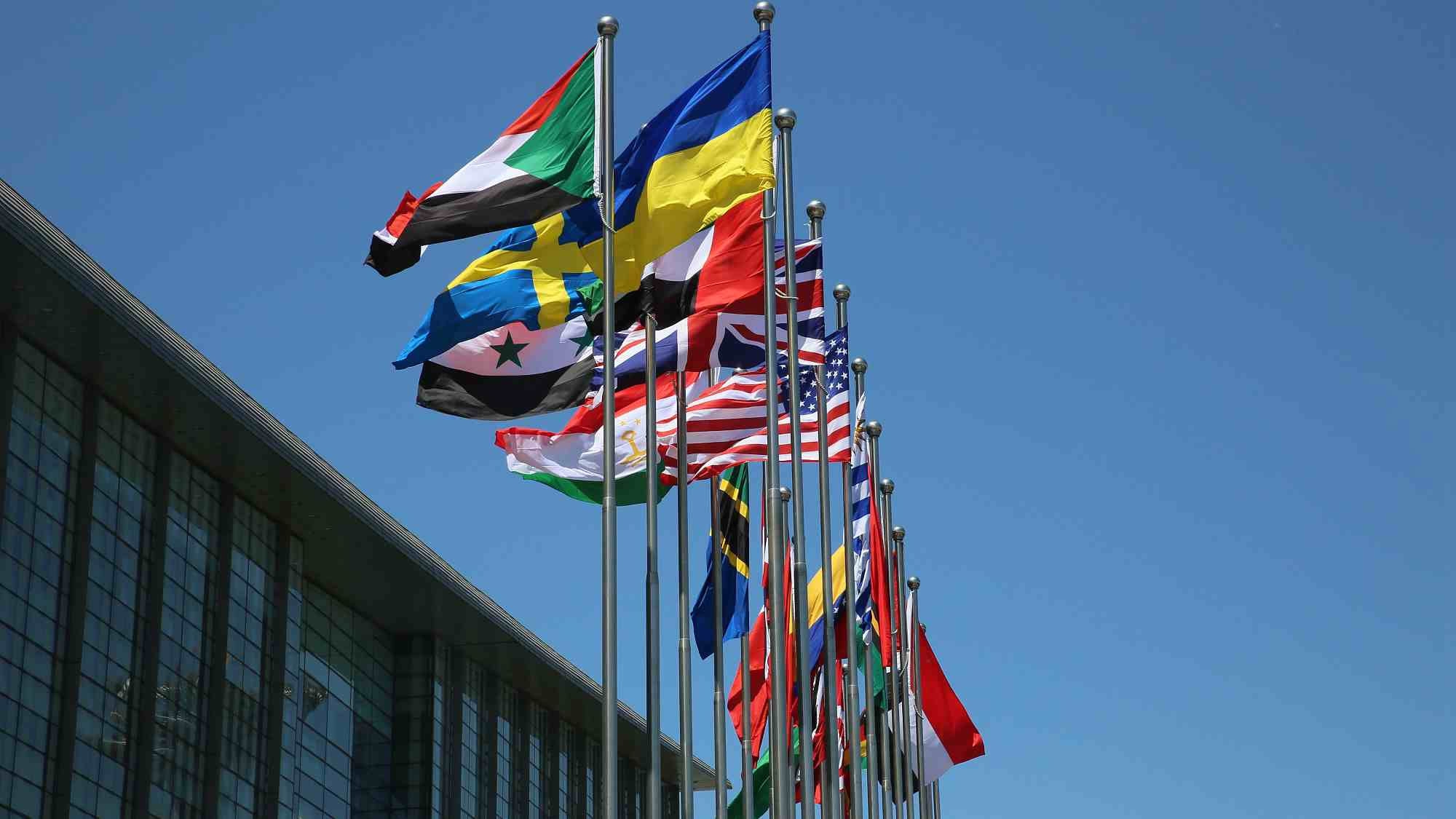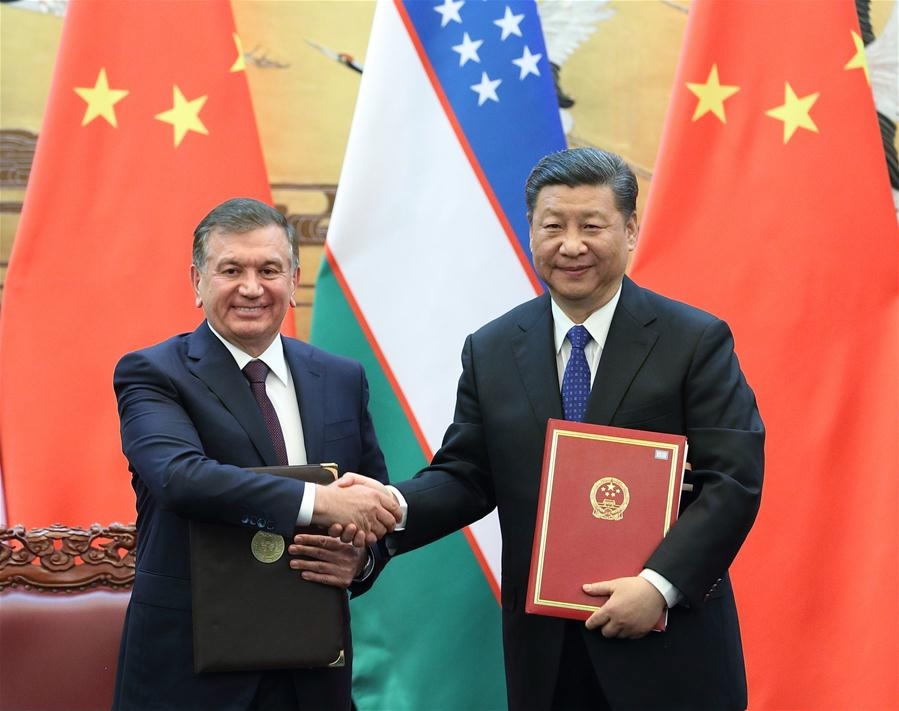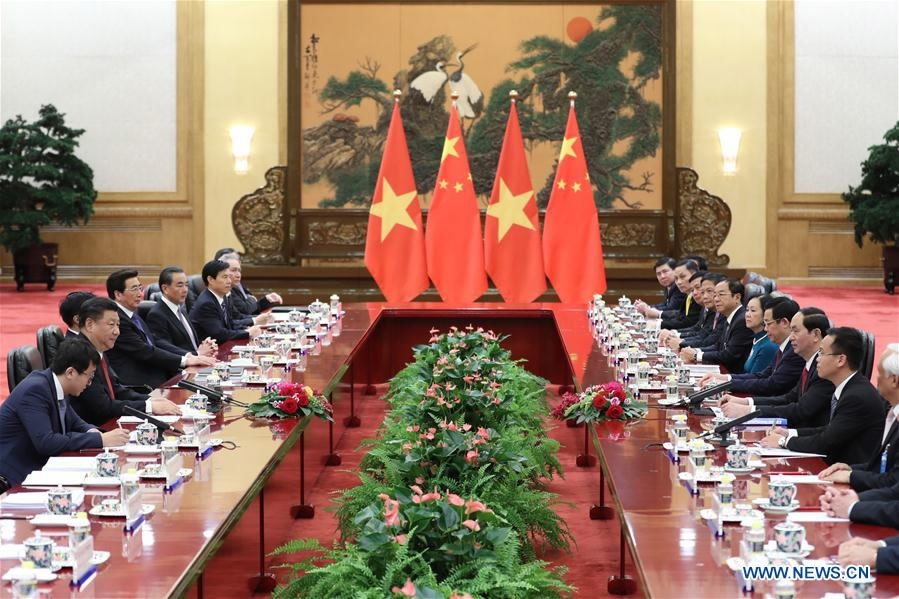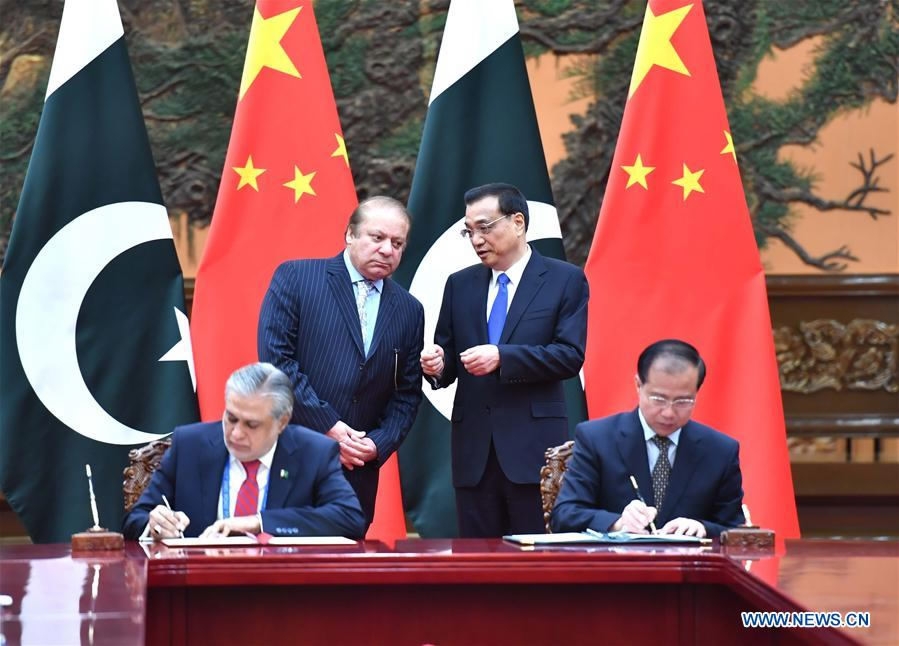
Politics
18:34, 13-May-2017
Opinion: 7 steps for success of the Belt and Road Initiative

Guest commentary by Liu Zhiqin
Around 1,500 guests from 130 countries and international organizations will attend the two-day Belt and Road Forum in Beijing from May 14-15. The US and all the major global economies will send high ranking officials to participate in this great event.
I believe that this event will be a turning point in defining the future of globalization.
China is obviously central to the success of the Belt and Road Initiative, and key to that success are seven “roles” the world’s second largest economy must play:

Chinese President Xi Jinping (R) and Uzbek President Shavkat Mirziyoyev sign a joint declaration to deepen comprehensive strategic partnership after their talks in Beijing on May 12, 2017. /Xinhua Photo
Chinese President Xi Jinping (R) and Uzbek President Shavkat Mirziyoyev sign a joint declaration to deepen comprehensive strategic partnership after their talks in Beijing on May 12, 2017. /Xinhua Photo
1. Assembler: China is responsible for "assembling" all the various countries of different backgrounds and interests to form a “Global Team".
2. Builder: China is a major builder, constructing and building projects like railways, highways, houses and ports across the Belt and Road countries.
3. Coordinator: China must act as a coordinator, solving problems or disputes between countries. Without such coordination, none of the projects can be conducted smoothly.

Chinese President Xi Jinping holds talks with Vietnamese President Tran Dai Quang in Beijing on May 11, 2017. /Xinhua Photo
Chinese President Xi Jinping holds talks with Vietnamese President Tran Dai Quang in Beijing on May 11, 2017. /Xinhua Photo
4. Designer: China needs to design projects that meet the environmental conditions in which they are built, and are agreed upon by most of the locals involved. A good design is half of the success.
5. Engineer: This is most important role China must play. China has a very strong track record in completing difficult engineering projects and the ability to overcome unexpected challenges. In many ways engineering is China’s “soft power.”
6. Financer: People in China understand the idea that “building a road will bring you a fortune." But the truth is that "no money equals no road.” China must cooperate with all the Belt and Road countries to make effective use of the Asian Investment Infrastructure Bank and other funds to support all projects with sufficient financial services. And above all financial matters must only be undertaken under strict supervision and regulation.
7. Wealth distributor: China must ensure all countries share in the benefits of the Belt and Road Initiative. Countries must “benefit” in a transparent, fair and just manner.

Chinese Premier Li Keqiang (back, R) and Pakistani Prime Minister Nawaz Sharif (back, L) at the signing ceremony of bilateral cooperation documents on economy and technology after their meeting at the Great Hall of the People in Beijing on May 13, 2017. /Xinhua Photo
Chinese Premier Li Keqiang (back, R) and Pakistani Prime Minister Nawaz Sharif (back, L) at the signing ceremony of bilateral cooperation documents on economy and technology after their meeting at the Great Hall of the People in Beijing on May 13, 2017. /Xinhua Photo
China has a lot to do. All seven roles will be very important and in the end determine whether the Belt and Road Initiative will be sustainable or will only last a short time.
We are definitely aware that China can reliably deliver whatever it has promised. So the whole world should feel relaxed that the Belt and Road Initiative will make the greatest contribution in the history of mankind, and will help the downside economic growth of the global economy recover within shortest time frame.
(Liu Zhiqin, senior fellow of Chongyang Institute for Financial Studies of Renmin University of China. The article reflects the author’s opinion, not necessarily the view of CGTN.)
1km

SITEMAP
Copyright © 2018 CGTN. Beijing ICP prepared NO.16065310-3
Copyright © 2018 CGTN. Beijing ICP prepared NO.16065310-3